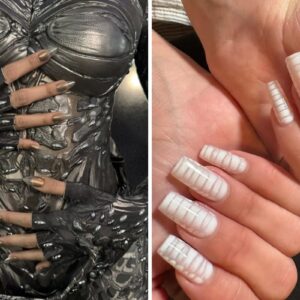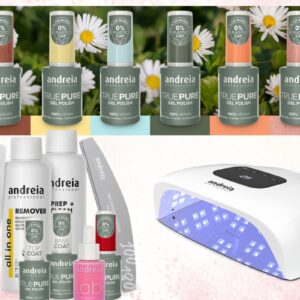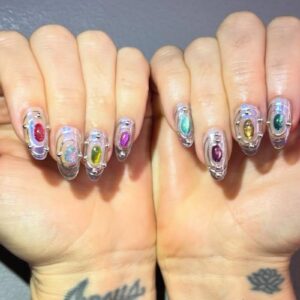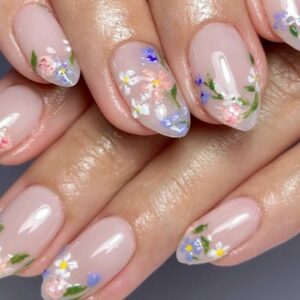
Do AI chatbots like ChatGPT have a place in the nail industry?
By Rebecca Hitchon | 12 July 2023 | Business, Feature, Tech Talk, Technology

Disclaimer: this article is not written by a robot. But it does explore how language processing tools driven by artificial intelligence (AI) technology, or ‘chatbots’, are influencing the nail and beauty sector.
As this technology integrates into our lives, many are wary of its place in society – and its potential. ‘Will robots take over?’ is a question that has been circulating, with particular focus on the ChatGPT tool from AI research company, OpenAI.
As someone whose livelihood is based on writing content, the idea that technology can create written works is a little frightening. But it depends how it’s used. As nail techs, you interact with clients online and likely create your own marketing materials that target them, so you may be cautious of handing such tasks over to a computer system. However, with ChatGPT reaching 100 million active users in January and becoming the world’s fastest-growing consumer app in history, nail pros are increasingly embracing this technology. I’ve sought to find out why, talking to some of those utilising chatbots and exploring their pros and cons to discover if they have a place in the future of the nail industry.
The pros
- Time-saving: With the ability to instantly respond to requests, such as copywriting or text summarising, chatbots free up time to focus on other business demands. Their use as customer service assistants allows simple or frequently asked questions to be answered without the need for a human present, and more complicated requests can be directed to appropriate employees, increasing efficiency.
- Personalisation: Clients appreciate personalisation and AI can help businesses offer tailored recommendations to them, encouraging brand loyalty. Two beauty brands using AI for personalisation purposes are L’Oréal and Sephora. Beauty Genius from L’Oréal and Sephora Virtual Artist are virtual assistants that provide bespoke product recommendations, as well as skincare advice (L’Oréal) and tailored make-up tutorials (Sephora).
- Source of inspiration: The nail industry is a creative sector, but the constant need for design and marketing ideas can be overwhelming. AI chatbots can provide ideas for themed nail looks (perfect for competition work or unusual client requests) and compelling social media and e-mail marketing copy.
- Language understanding: While AI does not have the same understanding of language as humans, it does offer benefits in terms of translation, which is ideal for interaction with clients who are not fluent in your language. AI models can also comprehend a user’s natural language, rather than requests carefully formed to suit their programming, and respond to this using natural-sounding wording for a user-friendly experience.
The cons
- Bias and factual inaccuracy: Chatbots are trained on data from the internet, meaning that they take onboard online discriminations and misinformation. Likewise, ChatGPT writes responses using data from up until September 2021, making the tool’s knowledge of events and information after this date limited. Evaluating and editing responses from AI tools before publishing them is vital, and don’t hesitate to request sources of information given.
- Environmental impact: Computer scientists estimate that the carbon footprint generated from training OpenAI’s text generating model is equivalent to driving a car to the moon and back.
- Security and plagiarism issues: Concerns have been raised about how secure chatbots are when handling personal data, and whether they use some data without consent. Similarly, without any human involvement in creating content, these tools pose a risk of copying the work of others.
- Loss of human touch: Contrary to what may be presented in sci-fi movies, AI does not have a consciousness. It lacks an understanding of the nuances of human behaviour or the complexity of language, and cannot replicate the creativity of humans.
Tech talks
 Laura Chree of Chreeative Nails, Scotland & Louella Belle ambassador
Laura Chree of Chreeative Nails, Scotland & Louella Belle ambassador
“I am a small business owner and manage every aspect of my brand, so it can be challenging to regularly think of witty and captivating social media captions and e-mail copy. AI has revolutionised the way I approach my marketing. I use the ChatOn app to create engaging copy, while saving time and effort. After inputting the key points that I want to convey, the app takes care of the rest. I can now plan an entire month’s marketing calendar in one hour, allowing me to focus on other aspects of my business.
“However, AI has limitations and sometimes the copy it generates can sound impersonal and not capture my tone of voice. In such cases, I either use the provided wording as a framework or adapt a few words to maintain an authentic feel.”
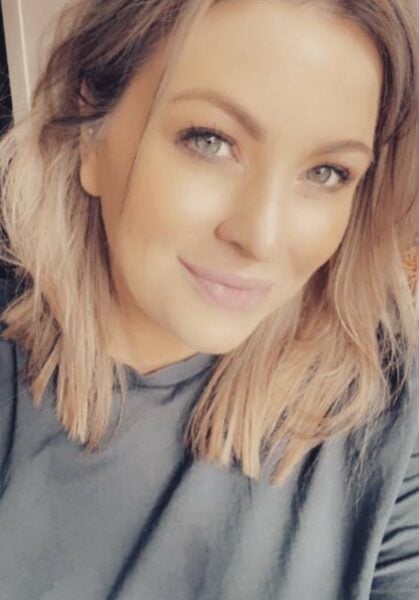
Millee Barton of Millee Barton Nails & Beauty, Barnsley
“With technology evolving and shaping the beauty industry, leveraging ChatGPT may be an essential tool for staying competitive and achieving success. It offers many ways to support my business. I use the technology to manage my social media presence and create content, as well as summarise articles into digestible bullet points so I can learn better. It frees up time, so that I can focus on developing my practical skills and providing exceptional service to clients.”
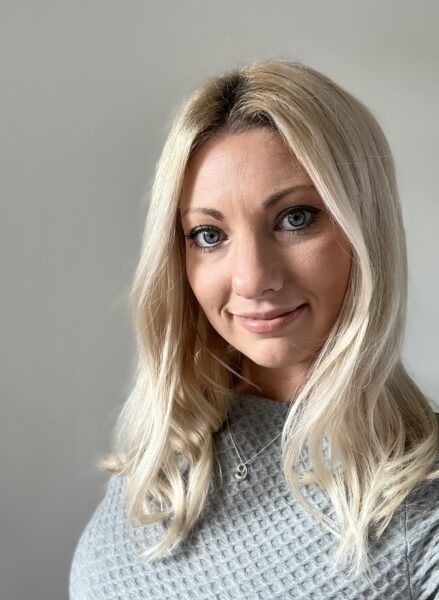
Katie Clark, founder of Katie Barnes Tool Range & Education
“When I’m not feeling inspired to create fresh and catchy content, I use Copy.ai to help me write social media captions and marketing copy. It can be used in conjunction with the user’s own ideas and wording, to create the best captions to engage clients. I usually pick a selection of words and phrases generated by Copy.ai and combine these with my own wording, to ensure they make sense and suit my brand.”
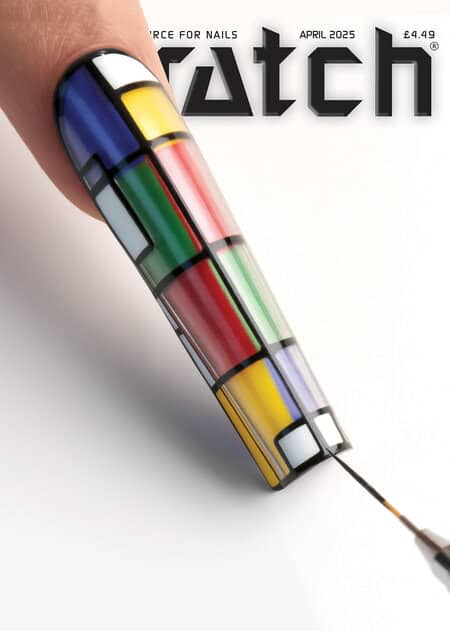
Read the latest issue
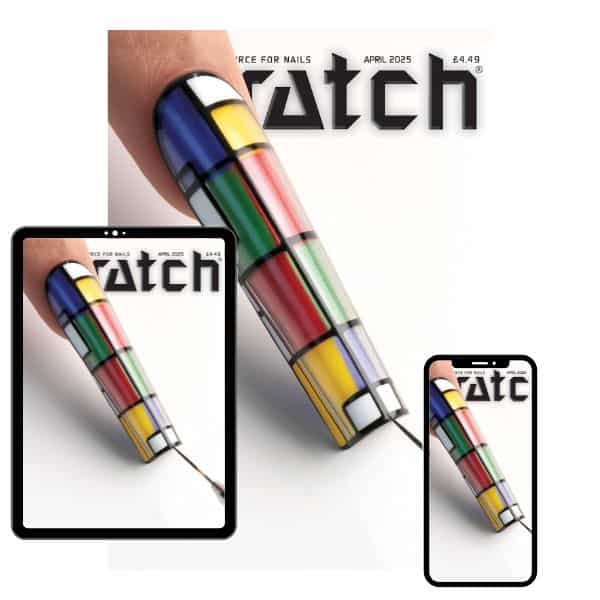

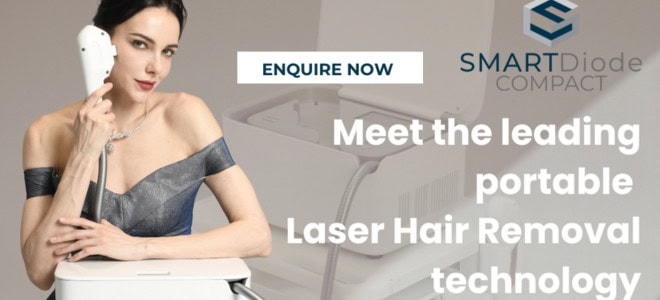

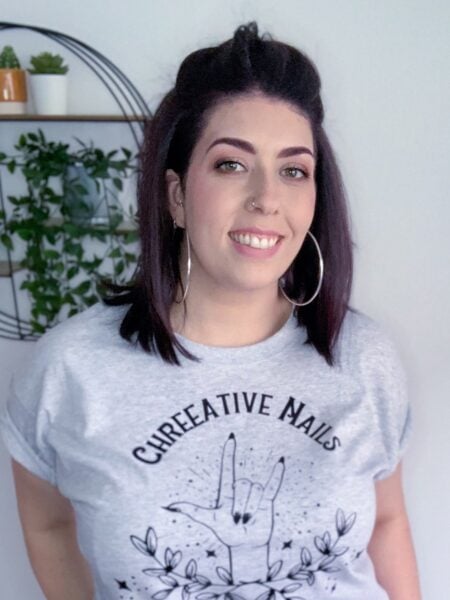 Laura Chree of
Laura Chree of 
